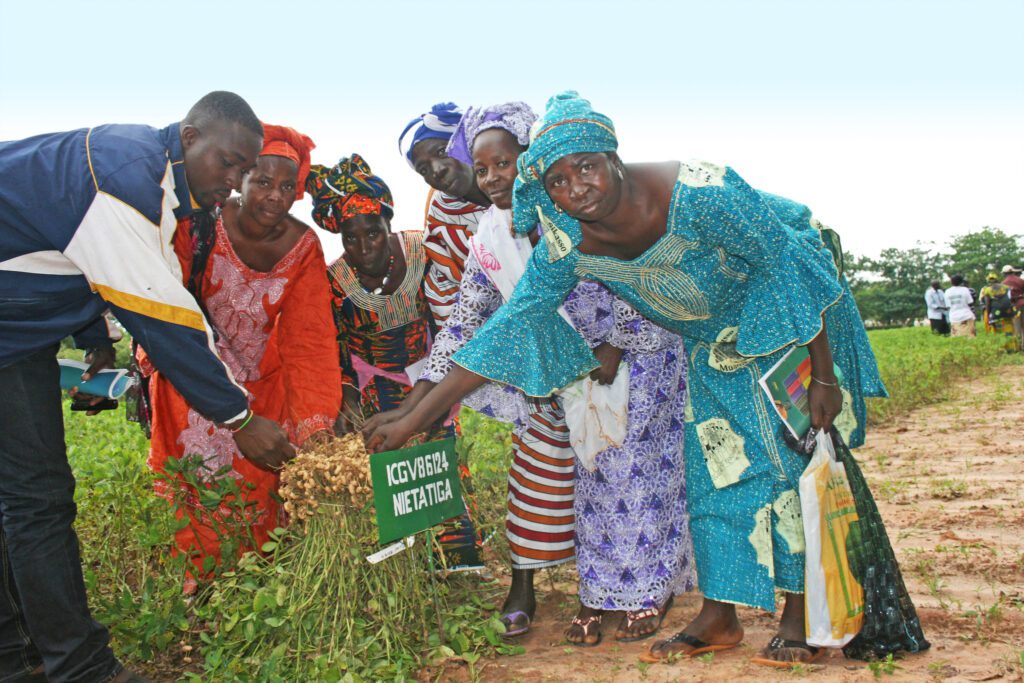SGCI News
Collaborations with businesses and government help researchers in Malawi tackle ‘real world problems’. By: Michael Kaloki The Science Granting Councils Initiative is using the so-called “triple helix approach” to enable…
Collaborations with businesses and government help researchers in Malawi tackle ‘real world problems’.
- SGCI partnerships with private sector, government supporting research in Malawi
- ‘Triple helix model’ used to solve problems facing businesses
- More funding needed for Africa-centred artificial intelligence
By: Michael Kaloki
The Science Granting Councils Initiative is using the so-called “triple helix approach” to enable African researchers to collaborate with their governments, the private sector and other scientists, to advance science and overcome funding challenges.
Gift Kadzamira, director general of the National Commission for Science and Technology in Malawi, a member council of the SGCI, says collaboration enables researchers in Africa to solve challenges that are unique to the continent.
“The triple helix system refers to interactions between academia, the private sector and the government,” explained Kadzamira. “The model, adopted in several countries, aims to advance research and foster growth in innovation.”
She said the model equips universities to “solve research problems that the private sector is facing”, in partnership with others.

The SGCI is a multilateral initiative established in 2015 to increase the institutional capacities of 16 public scientific funding councils in Sub-Saharan Africa. Its goal is to support research and evidence-based policies that contribute to economic and social development.
“The beauty of the SGCI is that it allows us to collaborate on research projects, share resources, and build capacity,” added Kadzamira. “We’re not working in isolation; we’re working together to address the challenges facing our continent.”
Innovative solutions
The focus of these collaborations is on finding innovative solutions and practical applications, said Kadzamira.
“We’re ensuring that the private sector is part and parcel of the research process, so that universities can solve real-world problems,” she explained.
“Science, technology, and innovation are global. This is why partnerships with institutions like SGCI are essential.”
Now, she wants to see more support for research in artificial intelligence (AI), tailored to African needs.
“We cannot afford to be left behind,” she said.
The National Commission for Science and Technology in Malawi partners with the SGCI to support research and evidence-based policies that contribute to economic and social development.
Kadzamira emphasised the need for gender inclusivity in research, citing the SGCI’s efforts to support gender equality and commission research on gender-related themes.
“We need to ensure that our research is inclusive, that it takes into account the needs and perspectives of all, including women and marginalised communities,” she said.
“Through this theme, the SGCI aims to support dialogue sessions on gender equality and inclusivity, as well as commission research on gender-related themes, such as the status of women as scientists and exploring the barriers they face.”
Research funding
In Malawi, the SGCI’s research funding initiative has supported research into the efficacy of ethanol as an alternative fuel for vehicles. This resulted in the Malawi government approving a number of recommendations made by the researchers, according to Kadzamira.
Apart from providing research grants, the SGCI also offers capacity strengthening, such as training, peer learning and technical support.
“We have been able to gain collaboration in interdisciplinary research, for example, looking at issues to deal with climate change and health,” said Kadzamira.
“Through that, we are able to gain intellectual capital that maybe we did not have…If we researched on our own, we would not have been able to achieve the quality of research results that we wanted.”
Kadzamira said that one significant impact of the SGCI’s research funding has been the increased visibility of researchers, not only in Malawi but worldwide. “The collaborative research that has been happening has allowed nations in the West to recognise that there are quality researchers in Africa who can do quality work,” Kadzamira added.
Related News
Biogas plant addresses energy poverty in Malawi
Researchers in Malawi are helping communities reduce waste and improve sanitation through biogas production. By: Charles Pensulo [BLANTYRE, MALAWI] A biogas plant in Malawi has transformed the lives of mothers, girls, and children in local communities by reducing reliance on firewood and providing them with…
Mass breeding of desert locusts unlocks new food source
Researchers have developed a way of breeding locusts as a source of protein for animals and people. By: Dann Okoth [NAIROBI] Mass breeding of desert locusts in a controlled environment could provide a sustainable source of protein for animals and humans as well as business…
Indigenous plants support nutrition in Southern Africa
Researchers in Southern Africa turn indigenous plants into food products to tackle micronutrient deficiencies. By Nelson Mandela Ogema Food recipes developed from indigenous plants and adapted to local climates could improve nutrition and alleviate food shortages in rural households in Sub-Saharan Africa, researchers say.The African…
Research and Resources

SGCI funded projects
Information on projects funded by SGCI coming soon!
Information on projects funded by SGCI coming soon!





